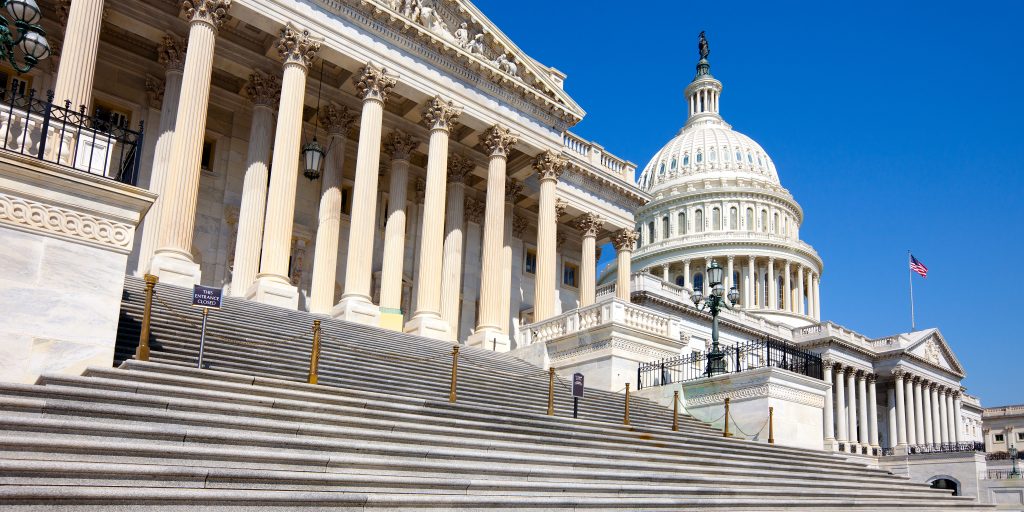With many cities facing a fiscal cliff as ARPA funding ends, debt ceiling debate continues on Capitol Hill
As debate over the debt ceiling continues, cities and counties across the nation are facing an uncertain future as American Rescue Plan Act funding dries up. The federal government reached its spending cap of $31.4 trillion, previously set in 2021, in January. Since then, with lawmakers on Capitol Hill locked in impasse, the U.S. Department of the Treasury has been paying the nation’s bills from cash reserves.
But those reserves will soon run out. Treasury Secretary Janet Yellen warned in a letter to House Speaker Kevin McCarthy that the government could default on its debts in coming weeks if an agreement isn’t reached. Yellen highlighted the detrimental economic impact of delayed compromise on the economy, which is already being felt.
“We have learned from past debt limit impassses that waiting until the last minute to suspend or increase the debt limit can cause serious harm to business and consumer confidence, raises short-term borrowing costs for taxpayers, and negatively impacts the credit rating of the United States,” Yellen wrote. “In fact, we have already seen the treasury’s borrowing costs increase substantially for securities maturing in early June.”
Given the implications, public officials and local government advocates are calling on Congress to put aside their differences and reach an agreement as soon as possible.
“We are coming down to the wire on preventing a default on the national debt, which would be devastating for local governments and their residents. While we commend the White House and Congressional leadership for coming to the table, there is no time to lose,” said Clarence Anthony, CEO and executive director of the National League of Cities (NLC) in a statement. “Short-term rates are already at significantly higher levels than in recent history. A default by the federal government would likely cause those rates to skyrocket temporarily, making it unfeasible for local governments to utilize short-term borrowing facilities.”
With interest rates high, cities and counties would have to “delay or cancel many projects, such as bridges and sewer system upgrades, until interest rates return to normal,” Anthony continued. “This would impact infrastructure projects and the jobs they create particularly hard, disrupting local economies, municipal budgets and much-needed infrastructure improvements in communities across the country.”
An explainer produced by NLC relates the most pressing challenges local governments would face in the event of a federal default. The federal government wouldn’t be able to meet its financial obligations, including that which is owed to municipal and county governments. The stock market would tumble, putting trillions of household weath at risk and impacting local tax revenue.
“Any breach of the debt ceiling could substantially drive up the cost of short-term debt. Many municipalities use short-term debt for immediate bills including those around infrastructure and capital improvements. In turn, this would likely lead a municipality to have to either delay or cancel many capital projects until the issue got resolved and interest rates return to more normal levels,” the brief reads.
Municipalities, meanwhile, are facing fiscal strain as federal pandemic aid comes to an end and they face the possibility of a recession.
“Going into the pandemic, our economy had been thriving and we had been building up our fund balance to its highest level, ever,” said Rob Dubow, director of finance the city of Philadelphia, Penn., during a recent Special Briefing from the Volcker Alliance titled “Avoiding Municipal Distress.” The impact from COVID-19-related shutdowns “was immediate, in part because we have a tax base that is different from tax bases in a lot of jurisdictions. We’re realy reliant on a wage tax, so that tax is much more sensitive to what goes on in an economy than a property tax.”
Among all U.S. cities, Philadelphia was among the hardest hit. Dubow said the city received $1.4 billion in funding through the American Rescue Plan. All of it was used to recoup an estimated $1.5 billion in pandemic-driven losses. As the city pivots toward the future—and the possibility of a default or recession—Dubow said one of the city’s biggest challenges is “making sure we don’t fall off a fiscal cliff when those dollars go away.”



















